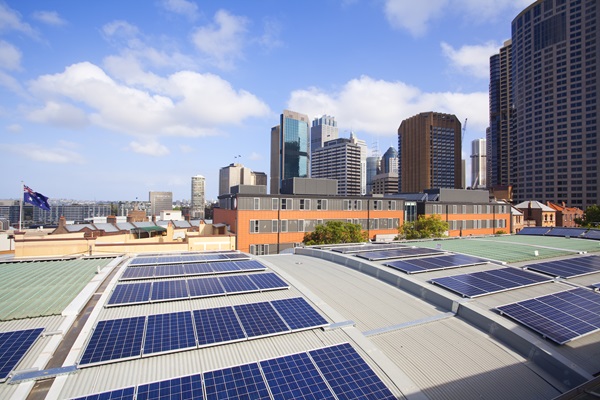Australia is a compelling destination for Canadian businesses looking to expand internationally. Its economy has a solid record of growth, and its business environment is trade-friendly, diversified and stable. Australia has strong connections to nearby markets, including the Association of Southeast Asian Nations (ASEAN), China, Japan and India.
Canada and Australia are allies on the global stage and have a strong economic relationship, cemented by the Comprehensive and Progressive Agreement for Trans-Pacific Partnership (CPTPP) free trade agreement. On a practical level, many Canadians find Australia to be a comfortable place to do business, as we share a language and have similar cultures, governments and legal systems.
Export Development Canada (EDC) believes these factors, along with the market’s overall strength, make Australia a great location for Canadian companies looking to establish a foothold in the Indo-Pacific and learn the ropes of doing business halfway around the world. Read on to learn more about Australia’s business environment, competitive advantages, and sector opportunities, and find out how your company can get support for market entry and expansion in Australia and the Indo-Pacific region.

Australia’s economy is diversified and resilient. In fact, before COVID-19, the country hadn’t had a recession for 28 years. The country bounced back quickly from the brief recession it experienced in 2021, largely due to its strong economic ties throughout the Indo-Pacific and position as a gateway to the region. Like Canada, Australia relies on trade for its prosperity and has cultivated business-friendly policies that help its economy compete globally.
“Canada and Australia have strong, sophisticated and developed economies in common,” says Sarah Quigley, Canada’s acting consul general and senior trade commissioner with the Trade Commissioner Service (TCS) in Sydney. “We both have high standards of living and well-educated workforces, and we’re extremely stable politically and legally. For these reasons and others, our countries rate highly in the international rankings for ease of doing business and global competitiveness.”
Canada-Australia trade and investment data from the Government of Canada indicates how robust our relationship has become. In 2022, bilateral merchandise trade totaled $5.8 billion, and Canada exported $3.1 billion worth of goods to Australia. On the investment side, Australia is a major destination for Canada’s total direct investment into the Indo-Pacific. Total direct investment into Australia has been growing over the years and reached a staggering $57.9 billion in 2022, up from $45.4 billion in 2021.
The Indo-Pacific is the world’s leading region of economic growth. With a population of four billion and a growing middle class, this region is forecast to account for 50% of global gross domestic product (GDP) and 40% of global consumption by 2040.
Currently, Canada’s most important trade agreement in the Indo-Pacific is the CPTPP. This treaty covers not only Canada and Australia, but also Japan, Mexico, New Zealand, Singapore, Vietnam, Peru, Malaysia, Chile and Brunei Darussalam.
“The CPTPP offers enhanced market access for Canadian businesses and will help make you more competitive by eliminating tariffs and reducing barriers for 98% of exports among the member countries,” says Quigley.
Along with the CPTPP, Australia has bilateral free trade agreements (FTA) with a diverse list of markets around the globe: China, Hong Kong, India, Indonesia, Japan, Korea, Malaysia, New Zealand, Singapore and Thailand in the Indo-Pacific, and Chile, Peru, the United Kingdom (U.K.) and United States (U.S.) outside the region.
Currently, Australia is negotiating an FTA with the European Union (EU). It’s also signed the following regional FTAs:
- The agreement establishing the ASEAN-Australia-New Zealand Free Trade Area (AANZFTA)
- The Pacific Agreement on Closer Economic Relations Plus (PACER)
- The Regional Comprehensive Economic Partnership Agreement (RCEP)
These FTAs can be a big incentive for Canadian companies to do business in Australia: By partnering with an Australian firm, or by establishing a business operation in the country, you can benefit from the agreements when you export from Australia to its FTA partners.
“Given the ease of doing business in Australia and the like-mindedness with Canadians, we see many Canadian companies set up in Australia first, and then develop partnerships and expertise locally to consider expanding into Asia from this market,” says Diane Belliveau, EDC’s regional vice-president for East Asia and Oceania.

Some of most promising sectors for Canadian companies include:
- Infrastructure: Australia is an infrastructure leader with a huge infrastructure pipeline. Total investment in major public infrastructure is expected to exceed $193 billion between 2021 and 2025. It has one of the world’s most advanced economies, in terms of collaboration between the public and private sectors, and there are a lot of public-private partnership projects being delivered in transport, energy, and social infrastructure.
- Power and renewables: Australia is investing heavily in renewable energy infrastructure to meet its 2050 net zero targets and has a project pipeline worth approximately $133 billion for wind, transmission, hydro/pumped hydro, solar, battery and hydrogen. It’s also building numerous renewable energy zones to enable this transition. At least 14,000 kilometers of transmission infrastructure will be needed across Australia’s electricity networks, increasing demand for expertise in transmission and renewable energy generation and storage. This focus on renewable energy in Australia offers opportunities not only for Canada’s engineering firms, but also for countless other Canadian companies that can supply innovative cleantech solutions, products, and services for these projects.
- Critical minerals: This industry holds lots of potential for co-operation between our countries. Australia has abundant critical minerals to support the energy transition, providing many opportunities for Canadian expertise to help develop critical mineral supply in times of high demand.
- Agri-food: Canada’s innovative agriculture and agri-food sector can find compelling opportunities here. Like Canada, Australia is an agri-food powerhouse, and exports 72% of its agricultural production. Some key trends in this sector heading into 2030 are sustainable food production, lowering emissions and using green energy. Also, agri-tech and food technologies are in demand to increase farming productivity, and increased investment in equipment is key to mitigate rising wages and high overheads.
While Australia’s business environment is friendly, Canadian firms planning to operate in Australia can expect a few significant challenges, including:
1. Competition: “Australia is a fully developed market, so you’re going to be up against leading-edge, established global competitors, as well as established Australian companies with ready access to low-cost regional producers,” says Quigley.
2. Distance: Even from Canada’s West Coast, Australia is a long way away. Making frequent visits to customers in the country is costly. Australia’s sheer size also means that providing local, in-market support for your Canadian goods and services is vitally important for operating successfully in the country.
3. Logistics: Distance can also make shipping from Canada to Australia unreliable, costly—or both. The long logistics chains required could be vulnerable to interruption. These risks are top-of-mind for buyers in Australia, so be prepared to address their concerns.
4. Extreme environmental conditions: Australia is subject to periodic drought, flooding and wildfires, which can disrupt supply and transportation chains within the country and add the risk of physical damage if you have operations on the ground.
The first thing to consider when investigating Australia’s market potential is the strength of your business case for going there. Questions to explore include:
- Is there a demand for your product or service?
- Does your product meet local regulations (if relevant)?
- Do you have a convincing value proposition to attract potential Australian customers or partners?
- Does your company have the human, logistical and financial resources to operate from such a long distance with different time zones?
- Does your business model include the necessary support on the ground?
- Will you get a suitable return on your investment in the market?
Fortunately, you don’t have to find the answers to such questions on your own. Nor do you have to depend solely on your own resources when you’re entering and operating in the Australian market.
EDC is part of the Government of Canada’s trade ecosystem of experts available to help you save time, learn more about your target markets and identify the capital you need to grow. Led by the Trade Commissioner Service (TCS), this network of solution-oriented departments and Crown corporations can solve export problems and offer new perspectives, so businesses, like yours, can confidently expand and succeed, at home and abroad.
As part of our Indo-Pacific strategy, EDC is committed to helping Canadian companies diversify into new markets and succeed in this dynamic region. We opened our Australia representation in 2017, and EDC’s experienced team in Sydney is well-positioned to provide the industry insights, knowledge, and tools you need to succeed in Australia. EDC also offers:
- A full suite of credit insurance products to lower your risk for doing business abroad
- Help with getting access to working capital
- Expertise to enable you to learn more about international markets
- Connections to international companies in need of your products and services
Learn more about how EDC’s financial and knowledge solutions can help you understand the opportunities in your target market and make exporting less risky. To contact an EDC export advisor, visit our Export Help Hub.
Your local TCS team in Canada can assist in making sure you’re export ready. When you are, trade commissioners in Sydney and Canberra can help you determine whether your company has the potential to succeed in the Australian market and find vetted business contacts and strategic partners for your export operations there. Once you’re doing business in Australia, the TCS can assist you in solving a range of business problems.
You can also access many funding and support programs through the TCS. These include:
- CanExport, the TCS flagship program for helping small- and medium-sized companies break into international markets
- The Canadian Technology Accelerator, a month-long mentorship program
- The Accelerated Growth Service to help companies find and use sources of government support
- Business Women in International Trade, an advocacy program for Canadian women entrepreneurs
- Indigenous business export support for Indigenous-owned Canadian businesses
Interested in growing your business in Australia and the Indo-Pacific?
Connect with EDC and watch your business flourish on the international stage.
Answer a few questions about your company to learn more about how EDC can help to fuel your expansion in the Indo-Pacific.




